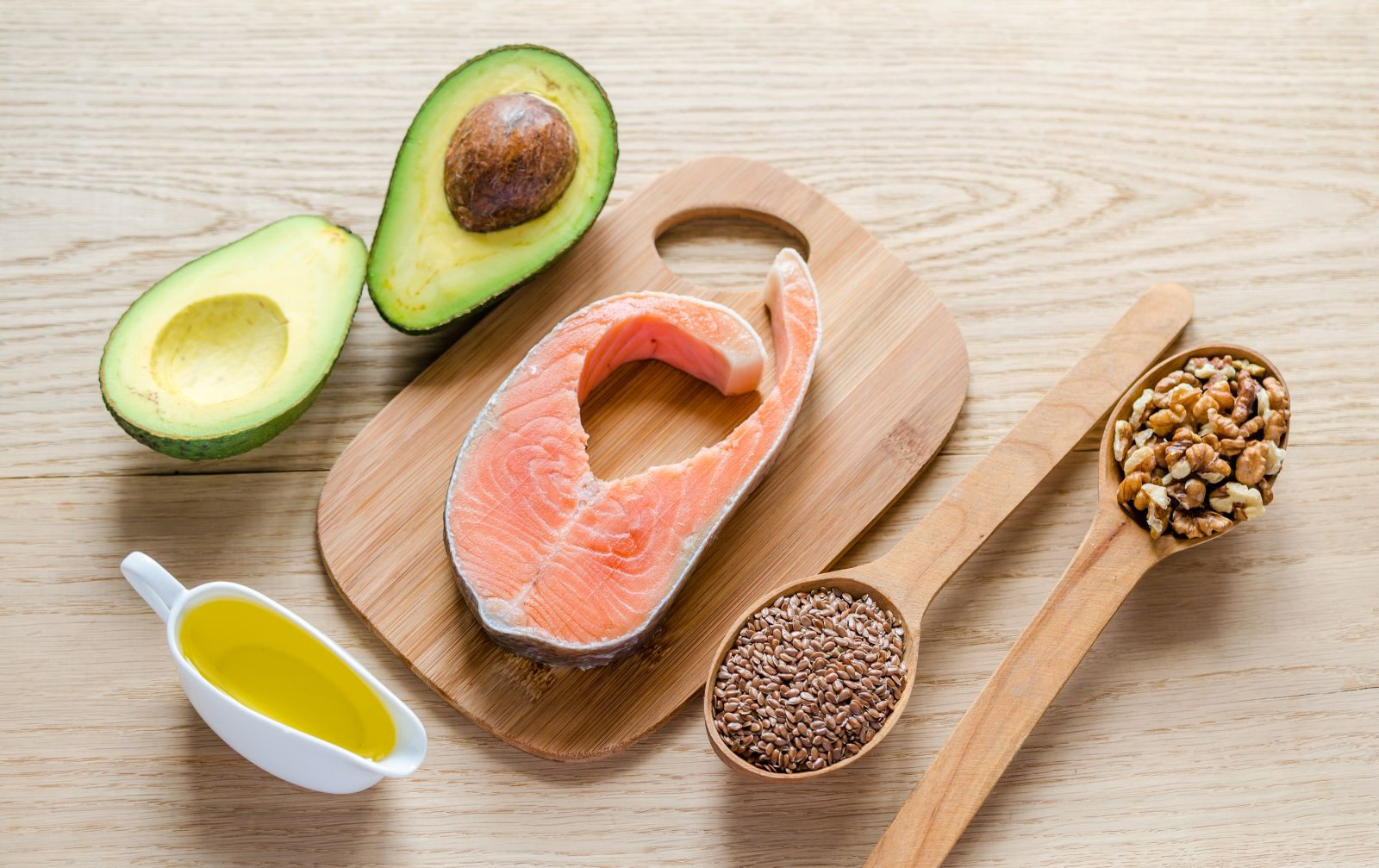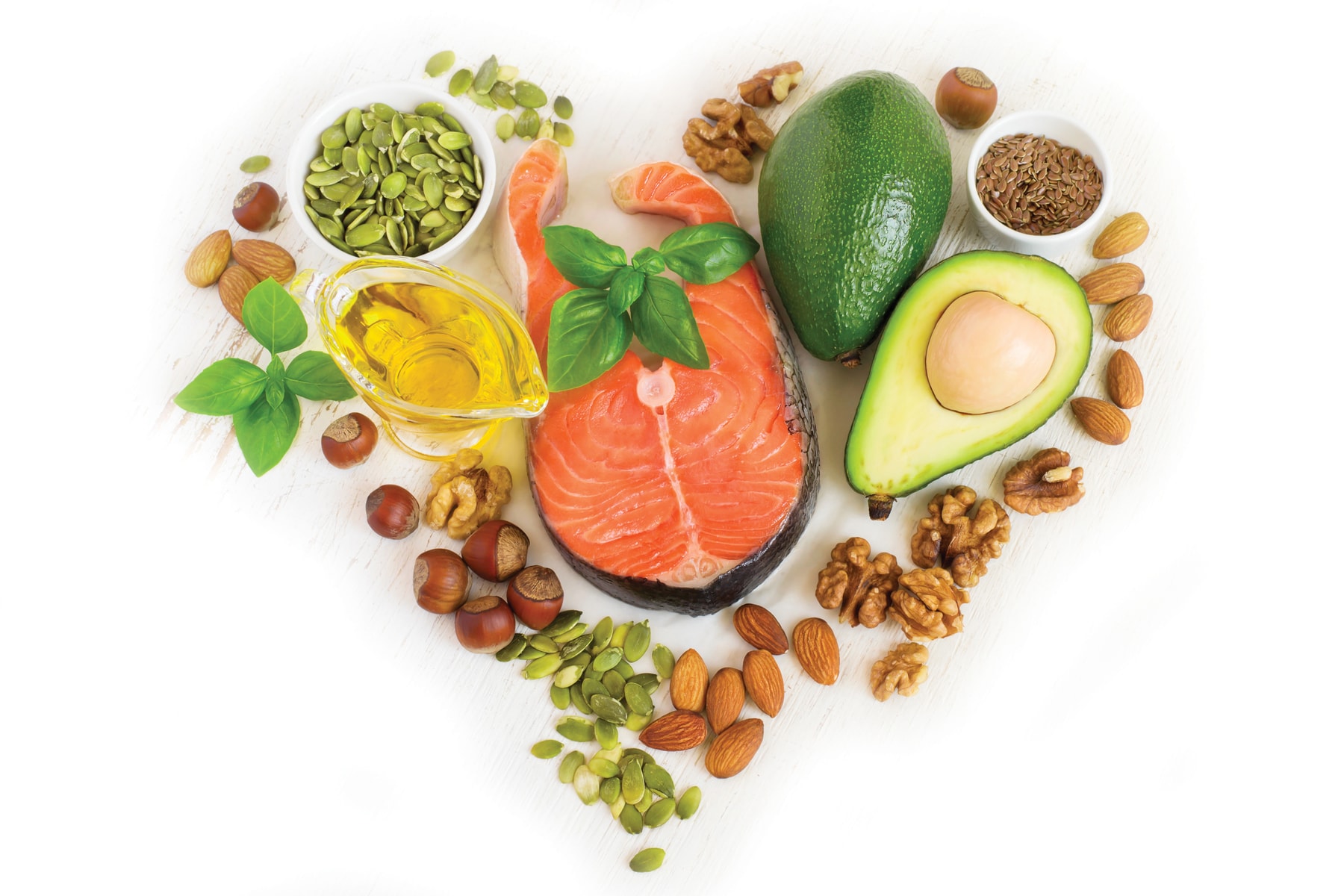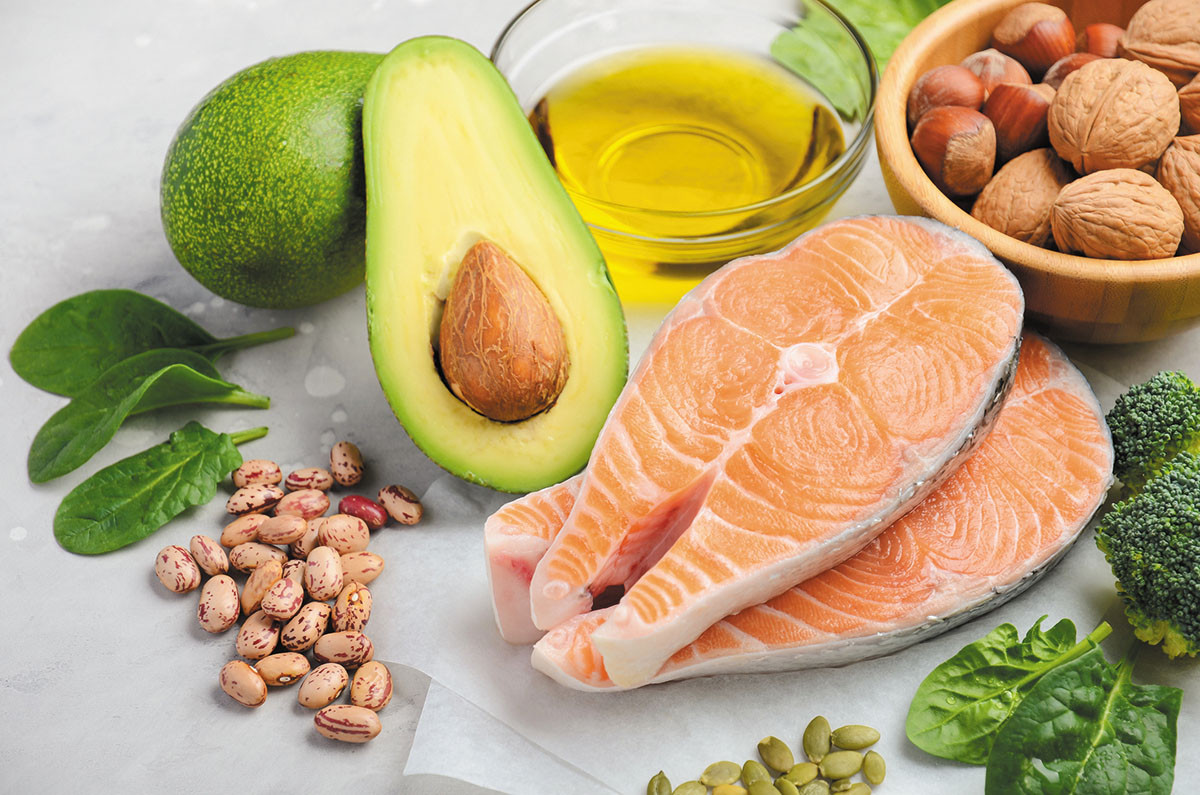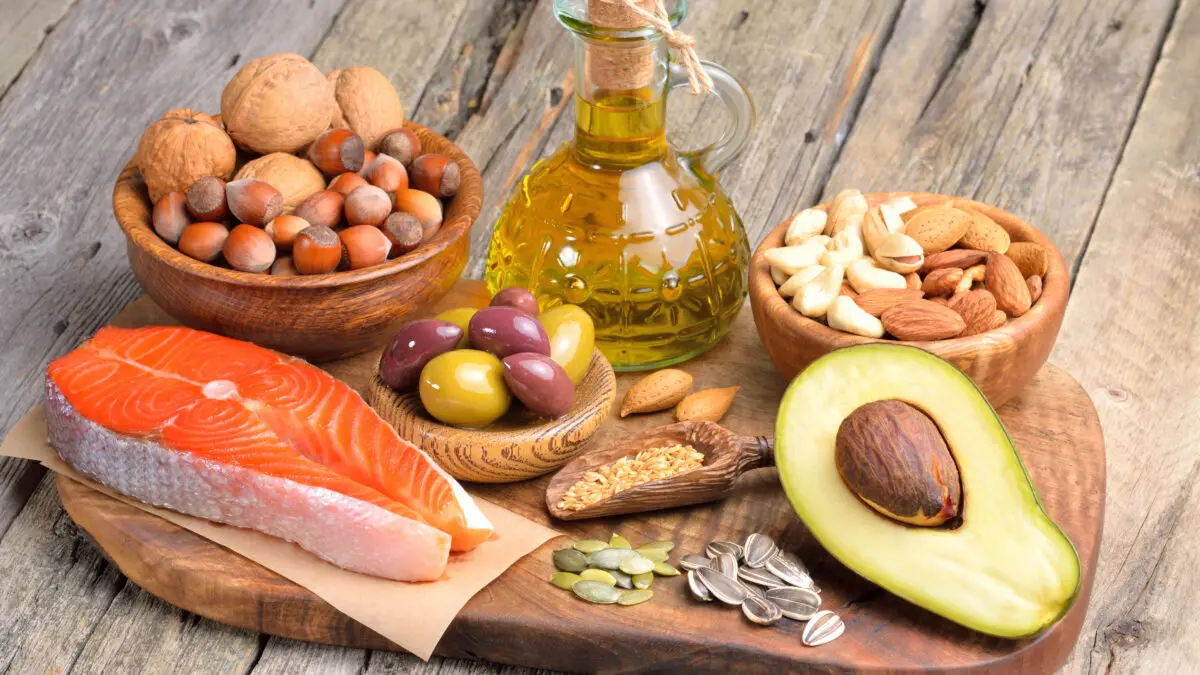The Scoop on Healthy Fats: Why You Absolutely Need Them
For years, we’ve been inundated with messages that fats are bad, unhealthy, and should be avoided at all costs. We’ve become a culture practically brainwashed into fearing this essential macronutrient. But the truth is, fats (the right kinds) are absolutely critical for overall health, vitality, and longevity! It’s time to shed those outdated myths and embrace healthy fats as the nourishing, indispensable foods they truly are.
The reality is, our bodies rely on healthy fat for thousands of fundamental processes. Fat provides energy, regulates hormones, facilitates nutrient absorption, and composes the very membranes of every single cell! Fats even influence brain development and function. Going too low in fat can do far more harm than good. The key is focusing your diet on unsaturated fat sources while avoiding harmful saturated and trans fats. It’s all about making smart, informed choices!
A Breakdown of Beneficial Fatty Acids
To better understand healthy versus unhealthy fat sources, let’s explore the different types of fatty acids and their unique traits:
Monounsaturated Fats – These plant-based fats provide antioxidant benefits and improve cholesterol profiles by raising HDL (good) cholesterol while lowering LDL (bad) cholesterol levels. Excellent sources include avocados, almonds, pecans, cashews, peanuts, peanut butter, olive oil, and sesame oil.
Polyunsaturated Fats – Containing two main forms (omega-3 and omega-6 fatty acids), polyunsaturated fats are considered essential since our bodies can’t produce them on their own. They must be obtained through dietary sources. Omega-3s like ALA, EPA, and DHA deliver impressive anti-inflammatory effects along with heart, brain, and metabolic benefits.
You’ll find these healthy, unsaturated workhorses in fish like salmon, mackerel, sardines, and tuna as well as plants like walnuts, flaxseeds, chia seeds, and canola oil. Most experts recommend emphasizing omega-3 sources over omega-6s since modern diets already deliver excessive omega-6 intake.
Saturated Fats – These fats come mostly from animal sources like meat, cheese, butter, and dairy products, though certain plant foods like coconut oil and palm kernel oil contain high levels too. While not as detrimental as trans fats, saturated fats can elevate LDL (bad) cholesterol in some individuals. Current recommendations advise limiting saturated fat to under 10% of daily calories.
Trans Fatty Acids – The true villains of the fatty acid world! These completely unnatural, manufactured fats are created through the industrial hydrogenation process that turns liquid vegetable oils into solid (and more preserved) cooking fats and shortenings. Trans fats raise LDL (bad) cholesterol levels and increase inflammation, insulin resistance, and heart disease risk. They offer zero health benefits and should be avoided entirely.
A Comprehensive Health Profile
Beyond serving as the body’s premium energy source, healthy unsaturated fats play vital roles throughout virtually every system:
Improved Cholesterol Levels – While trans and saturated fats raise LDL (bad) cholesterol, monounsaturated and polyunsaturated fats boost HDL (good) cholesterol levels and lower triglyceride counts. This optimized cholesterol profile translates to reduced risk for heart attack, stroke, and atherosclerosis.
Anti-Inflammatory Effects – Omega-3 fatty acids like ALA, EPA, and DHA exert powerful anti-inflammatory activity across all tissues of the body. This combats chronic, low-grade inflammation that drives aging, obesity, diabetes, cancer, and most degenerative diseases. Omega-3s help manage inflammatory conditions like arthritis too.
Brain Benefits – Our brains are largely comprised of fat! For optimum cognitive function, development, and preservation of gray matter, we need adequate intakes of brain-nourishing fatty acids like DHA and EPA. These healthy fats facilitate efficient cell signaling, neurotransmitter function, and protection against oxidative damage.
Eye Health – Certain unsaturated fatty acids play starring roles in preserving vision and preventing macular degeneration as we age. DHA in particular is a critical structural component of retinal cell membranes in the eyes, representing over 30% of the retina’s total polyunsaturated fat pool!
Skin Radiance – Healthy fats do more than just moisturize skin from the outside. Omega fatty acids act as natural water regulators within skin cells to boost hydration from within while supplying antioxidants to neutralize environmental damage. They also help regulate oil production to control shininess.
Metabolic Regulation – Certain polyunsaturated fats stimulate genes that increase insulin sensitivity and regulate fat metabolism. This helps optimize body composition while lowering risks for metabolic diseases like obesity and diabetes. Omega-3s may promote more efficient fat burning during exercise too.
Hormone Balance – Healthy fat intake facilitates production of reproductive hormones like testosterone and estrogen. It also supports regulation of other critical hormone messengers that govern appetite, energy levels, and overall metabolic function.
Immune Function – The anti-inflammatory properties of omega-3s bolster immune function by helping immune cells migrate efficiently to sites of inflammation or infection. Deficiencies in these critical fatty acids increase susceptibility to viruses and allergic conditions.
So as you can see, these amazing plant-powered fats deliver a staggering array of wellness advantages! They’re the all-important cellular gatekeepers and messengers governing countless biological operations. Nature really did give us the perfect multivitamin in the form of healthy fats.

How Much Fat Should You Eat?
While each individual has unique metabolic needs, most trusted health organizations recommend aiming for:
20-35% of your total daily calories from healthy fat sources
This generally equates to around:
– 45-75 grams of fat for most women
– 60-100 grams of fat for most men
Of course, these are just general guidelines that may need adjusting based on factors like age, activity level, weight goals, and personal carb/protein intakes. Eating too little fat can suppress testosterone, stall fat loss, and trigger intense food cravings. Too much dietary fat can certainly contribute to weight gain, malabsorption of nutrients, and other complications too.
The most effective approach is tuning into your unique nutritional needs and body signals. When your fat intake feels “right,” you’ll experience steady energy levels, balanced hunger cues, avoidance of cravings and nutrient deficiencies, plus optimal performance of everyday bodily functions.
Don’t Fear the Healthy Fats!
With so many powerful health impacts, it simply doesn’t make sense to continue low-fat dieting dogma that dominated during decades past. Our bodies absolutely require adequate unsaturated fatty acid intake from whole, minimally-processed sources. These fats are literally the molecular spark plugs that rev our cellular engines into prime operating condition!
Having said that, moderation is of course still key when it comes to dietary fat intake for most people. Those with certain medical conditions like pancreatitis may need to restrict fat temporarily under medical supervision too.
But for the most part, we’ve spent entirely too long shunning and vilifying these beneficial fats instead of embracing their nourishing roles. By shifting to a positive relationship with foods like avocados, fatty fish, nuts, seeds, eggs, and healthy oils, you’ll experience an array of health-enhancing effects.
These delicious, satisfying fats don’t just taste amazing – they fuel our bodies and brains at the most fundamental cellular levels! They facilitate delivery and bioavailability of fat-soluble vitamins like A, D, E, and K too. No other macronutrient provides such multifaceted activity across so many vital daily functions.
So let’s bid farewell to low-fat dogma and put an end to fat fears once and for all! Make room on your plate for healthy servings of these natural, nourishing whole food fats in balanced amounts. By doing so, you’ll unlock benefits for everything from cardiovascular function and inflammation management to memory preservation, fat loss, and so much more! Healthy fats truly are nutritional powerhouses deserving of love, not fear.



